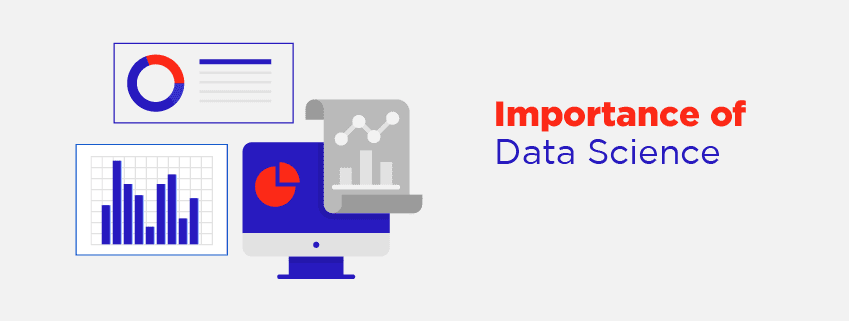
Data science in today’s business world is serving as the lifeblood of decision-making. Be it optimizing marketing campaigns or predicting financial trends, data science comes in handy across all industries to make data-driven decisions. It empowers businesses and organizations to analyze huge amounts of raw data and get meaningful insights that can help them propel their businesses forward.
But what exactly is data science and what are the essential components of data science that make up this amazing domain of technology? Well, if you are looking to make a career in data science, then you must be aware of these essential components in order to excel in your career.
So, let’s get started and explore the fascinating world of data science and its components.
Main components of data science
1. Data and data collection
There’s no point discussing data science if there is no mention of data. Any data science professional, be it an entry-level data engineer or experienced senior data scientist, they are not bereft of data and have to work closely with huge amounts of data, usually known as big data which can be terabytes and zetabytes. Data is the fuel that runs the vehicle of data science and it is of two types:
- Structured data: These are the information that have well defined format that resemble a table i.e. having rows and columns. They can be easily stored in relational databases and help with quick searching and analysis.
- Unstructured data: They are not properly defined and can exist in various formats including text documents, emails, social media posts, images, audio, video, etc. They require additional processing to get meaningful insights out of them.
Data collection from various sources including web scrapping, company databases, sensors, and any other sources is required to gather a complete set of data for a wholistic data analysis process.
2. Data Engineering
Data engineering refers to the designing, developing, and management of the infrastructure needed for storing, processing, and managing data efficiently.
The data collected by organizations from various sources are not complete, may contain inaccurate and incomplete information, and might be inconsistent. Therefore, they need to be cleaned and organized, a process which is also known as data wrangling. Data engineering helps convert inconsistent and unorganized data into complete data suitable for analysis. This includes:
- Checking for missing values
- Eliminating duplicate entries
- Correcting incorrect data and data types
- Applying data normalization techniques
- Making inconsistent data consistent through mergers, migrations, etc.
3. Statistics and probability
Statistics are the bedrock of data science. Numerous data science tools are available that help to analyze and interpret huge amounts of data, as a data science professional, you need to be good with techniques like hypothesis testing (that will you derive conclusions from datasets), and correlation and regression (which will help with identification of hidden patterns and relationships within data).
A recent study from Forbes mentioned around 74% hiring managers consider it to be an important data science skill for data scientists.
Along with statistics, probability is another important component helping data science professionals know the likelihood of the events. Therefore, it helps them make an efficient and more accurate data science model.
4. Programming languages
Data science is all about playing with data where you need to manipulate and analyze vast amounts of data efficiently. And this is where the programming languages come into play. They are the tools needed to play with data and derive the required results. Python and R are the two most popular programming language in the world of data science. Python holds the top position because of its user-friendly syntax and huge collection of data science libraries including NumPy, scikit-learn, pandas, etc.
Similarly, R is another popular choice and it is excellent tool for statistical computing and data visualization. As per Kaggle Survery, 88% of data scientists use Python followed by R which is used by 64% data science professionals including senior data scientists.
5. Data visualization
Not everyone working in the industry are well equipped with technical jargons tools and technologies. The stakeholders including customers and decision-makers need to be communicated in simple to understand language and visuals. So, data visualization helps to transform complex datasets into clear and compelling visuals that makes the communication with these non-technical stakeholders easier. Data visualization includes charts, graphs, and interactive dashboards, that bring life into data. According to a HubSpot 2023 study, data visualization helped 90% of senior executives make better decisions.
6. Machine learning
Machine learning is the sub-field of artificial intelligence capable of learning autonomously from data without explicit programming. ML models in data science helps the professionals identify patterns, make predictions, detect anomalies, and even automate some repetitive tasks.
Therefore, it is widely used in several applications including fraud detection, and product recommendations.
7. Domain expertise
Data science isn’t only about data. Data science is used to make business processes easier. Therefore, it is essential to have a solid understanding of domain expertise so that you can understand the business problem clearly for which data science project is initiated. With clear understanding of the domain, you can know your end goal, tune your data science model for that specific goal, and thus make better decision.
Data Science certifications are a great way to master each of these components of data science and take your data science career to the next level. So, enroll in top certification programs and learn these essential data science skills.
Conclusion
So, these were the essential components of data science which every aspiring data science professional must be aware of. These are essential because without any of them, the entire data science project may seem incomplete, and it will be difficult to build the right machine learning or data science model that can help with right output. Moreover, data science certifications will help you master these essential components to get started with your data science career. So, enroll now and start your data science journey.
